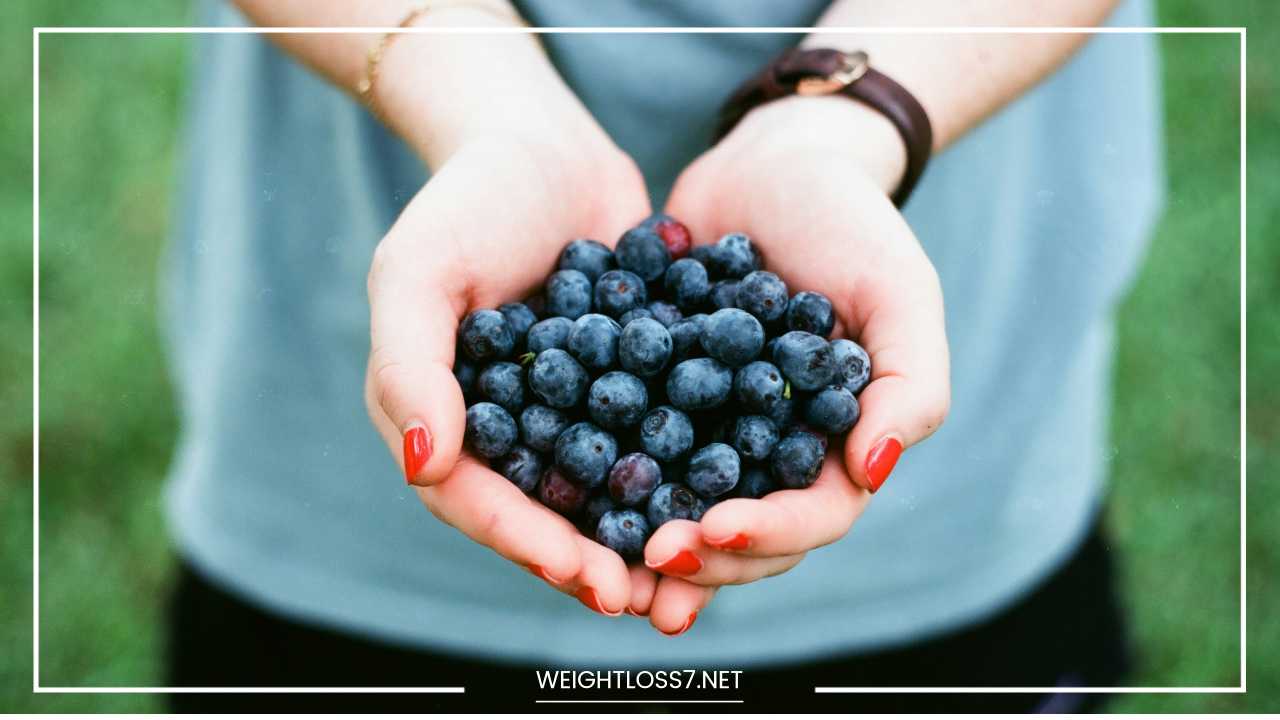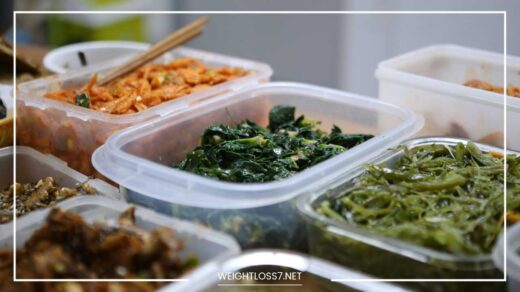Go Organic: Nourish Yourself & the Planet

Go Organic
Go Organic: A Nourishing Choice for You and the Planet
In the symphony of life, food plays the lead role. It fuels our bodies, shapes our mood, and influences overall well-being.
But with an ever-expanding grocery aisle filled with processed options, it’s easy to lose sight of where our sustenance truly comes from.
Today, we delve into the world of organic food, a choice that resonates not just on your taste buds, but for the health of our planet.
Organic: Beyond the Label, a Way of Life
Organic isn’t just a trendy buzzword or a badge of honor for your grocery basket. It’s a philosophy embedded in sustainable practices that nurture the earth and, in turn, our bodies.
It’s about rejecting the quick fixes of synthetic pesticides and fertilizers in favor of fostering a healthy ecosystem for our food to flourish.
Here’s a deeper dive into what sets organic farming apart:
- A Symphony of Natural Pest Control: Forget chemical warfare on your dinner plate! Organic farmers rely on natural methods to keep pests at bay. This can include crop rotation, where different crops are planted in the same field year afteryear, disrupting pest life cycles. They also leverage the power of companion planting, strategically placing certain crops together to attract beneficial insects that prey on harmful ones. Ladybugs, anyone?
- Raising Happy, Healthy Animals: Animals raised organically live a less stressful life. They roam freely whenever possible, are fed organic feed, and are not administered routine antibiotics or growth hormones. This not only promotes animal welfare but may also contribute to healthier meat and dairy products on your plate.
- Soil: The Unsung Hero: Organic farming prioritizes building healthy soil, the foundation of a thriving ecosystem. Practices like composting, using manure, and cover cropping (planting crops solely to improve soil fertility) enrich the soil with vital nutrients. This not only benefits the plants themselves but also improves water retention and prevents erosion, a critical factor in the fight against climate change.
Organic’s Bountiful Harvest: Benefits that Ripple Beyond the Plate
The rewards of going organic go far beyond just a feel-good factor. Here’s how your conscious choice can positively impact your health and the environment:
- A Potential Nutritional Powerhouse: Studies suggest that organic produce may be richer in certain antioxidants and vitamins compared to conventionally grown crops [1]. Think of it as a natural multivitamin, boosting your immune system and overall well-being.
- Minimizing Pesticide Exposure: The Environmental Working Group (EWG) estimates that the average American consumes a cocktail of over 100 different pesticides just by eating conventionally grown food [2]. Choosing organic minimizes your exposure to these potentially harmful chemicals.
- Taste the Difference: Organic purists swear by the richer flavor and quality of organic food. Perhaps it’s the focus on natural ripening and less reliance on storage techniques that leads to a more vibrant taste experience.
- Sustainable Agriculture for a Brighter Future: Organic farming fosters biodiversity by creating habitats for beneficial insects and pollinators. This not only sustains our food production system but also protects the delicate balance of our ecosystem.
Embracing Organic: A Journey You Can Take One Bite at a Time
Transitioning to a fully organic diet can feel daunting at first. But the key is to remember, it’s a journey, not a destination. Here are some practical steps to get you started:
- The “Dirty Dozen” as Your Guide: The EWG publishes an annual “Dirty Dozen” list, highlighting the fruits and vegetables with the highest pesticide residue levels [2]. When possible, prioritize buying these organic to significantly reduce your exposure to pesticides.
- Local Farmers Markets: A Treasure Trove of Freshness: Supporting local farmers markets is a double win. You get access to fresh, seasonal, and often organic produce while strengthening your connection to local agriculture. Bonus points if you can chat with the farmers and learn about their practices!
- Community Supported Agriculture (CSA): This is a fantastic way to get a weekly box of fresh, organic produce delivered straight from the farm. It fosters a sense of community and allows you to experience the joys of knowing exactly where your food comes from.
- From Seed to Plate: Grow Your Own! Even a small balcony garden can be your haven for organic herbs or cherry tomatoes. It’s a rewarding experience that allows you to witness the magic of nature firsthand. Remember, start small and scale up as you gain confidence.
Organic on a Budget: Making Sustainable Choices Affordable
The higher price tag often associated with organic food is a valid concern. Here are some strategies to make organic living more budget-friendly:
- Plan Your Meals: Planning helps you avoid impulse purchases and allows you to capitalize on seasonal sales at local farmers markets or even conventional grocery stores with organic sections. Look for recipes that highlight seasonal produce. This not only saves money but also ensures you’re getting the freshest, most flavorful ingredients at their peak.
- The Power of Bulk: If storage space permits, buying staples like organic grains, beans, or lentils in bulk can lead to significant cost savings in the long run. Just be sure you have airtight containers to maintain freshness.
- Frozen and Canned Organics: Your Allies, Not Enemies: Don’t discount frozen or canned organic options. Flash-freezing preserves nutrients at their peak, making frozen fruits and vegetables a convenient and affordable way to incorporate them into your diet year-round. Canned organic beans are a pantry staple for protein and fiber, and canned tomatoes are a versatile base for countless healthy dishes.
- Embrace Imperfect Produce: Many grocery stores now offer “ugly” or imperfect produce sections. These fruits and vegetables may be cosmetically challenged, but they’re just as delicious and nutritious as their picture-perfect counterparts. They’re often significantly cheaper, making them a win for your wallet and for reducing food waste.
Organic Beyond the Produce Aisle: A Holistic Approach
Organic living extends far beyond just the fruits and vegetables in your shopping cart. Here’s a glimpse into the wider world of organic options:
- Meat and Dairy with Integrity: Organic meat and dairy products come from animals raised without antibiotics or growth hormones and fed organic feed. This translates to potentially healthier meat and dairy products for you and your family. Look for certifications from reputable organic organizations.
- Organic Packaged Foods: From breakfast cereals and snacks to pantry staples like pasta and nut butters, you’ll find a growing selection of organic packaged foods that cater to busy lifestyles. While reading labels is always important, these options offer a convenient way to incorporate organic ingredients into your diet.
- Nourishing Your Skin with Organic Beauty Products: Pamper yourself with organic skincare and personal care products. These are often free of harsh chemicals, synthetic fragrances, and parabens, potentially reducing your exposure to harmful toxins.
- Sustainable Fashion Choices: Organic cotton clothing is a more sustainable option, as it’s grown without harmful pesticides and fertilizers. Look for certifications like Global Organic Textile Standard (GOTS) to ensure ethical and environmentally friendly practices throughout the clothing production chain.
Organic Living: A Ripple Effect for a Healthier Planet
Choosing organic is more than just a dietary preference; it’s a conscious decision to support sustainable practices that benefit the environment in numerous ways:
- Combating Climate Change: Organic farming helps mitigate climate change by promoting soil health. Healthy soil acts as a carbon sink, storing carbon dioxide from the atmosphere. This helps regulate our climate and reduces the impact of greenhouse gases.
- Protecting Biodiversity: Organic practices encourage biodiversity by creating habitats for beneficial insects, pollinators like bees, and earthworms. This is crucial for maintaining a healthy ecosystem that supports not just our food production but also the entire web of life.
- Conserving Water: Organic farming practices often require less water compared to conventional agriculture. This is especially important in drought-prone areas, where water conservation is vital.
The Future of Food: Organic at the Forefront
As consumers become more aware of the impact of their food choices, the demand for organic products is steadily increasing.
This is driving innovation in the agricultural sector, with a focus on developing new techniques and technologies to enhance organic production and make it more accessible.
Here are some exciting trends shaping the future of organic food:
- Regenerative Agriculture: This approach goes beyond simply organic by focusing on soil health and ecological restoration. It aims to improve soil fertility, increase biodiversity, and enhance the water cycle, creating a more resilient food system.
- Urban Farming: With an increasing focus on sustainability, urban farming initiatives are gaining traction. These innovative solutions allow for local production of organic food in urban areas, reducing transportation costs and environmental impact.
- Technological Advancements: Technology plays a growing role in organic farming. Precision agriculture techniques, for example, use data and sensors to optimize resource use and minimize waste. This allows farmers to make informed decisions about irrigation, fertilization, and pest control, fostering a more efficient and sustainable organic food system.
Beyond the Grocery Store: Expanding Your Organic Lifestyle
Organic living isn’t confined to the aisles of your supermarket. It’s a philosophy that can permeate various aspects of your life, creating a holistic approach to wellness and sustainability. Here are some ways to expand your organic journey:
- Cleaning Your Home with Organic Products: Swap harsh chemical cleaners for organic cleaning solutions made with plant-based ingredients. These are not only gentler on your surfaces but also safer for your family and the environment. You can even create your own DIY cleaning products using vinegar, baking soda, and essential oils.
- Organic Gardening: There’s nothing quite like the satisfaction of harvesting your own organic vegetables and herbs. Even a small balcony can be your haven for growing organic greens or cherry tomatoes. You can also explore community gardens or participate in local urban farming initiatives.
- Sustainable Homewares: Invest in reusable and sustainable products for your home. This could include bamboo cutlery, organic cotton dishcloths, or glass containers for food storage. These choices minimize waste and contribute to a more eco-conscious lifestyle.
- Supporting Organic Restaurants: Eating out doesn’t have to mean compromising your organic principles. Look for restaurants that source their ingredients from local organic farms. This allows you to enjoy a delicious meal while supporting sustainable practices.
- Organic Travel: When you travel, consider eco-friendly accommodations that prioritize sustainable practices. Look for hotels or resorts with organic gardens, composting programs, and energy-saving initiatives.
Advocacy and Education: Empowering Change
Knowledge is power. By educating yourself and others about the benefits of organic food and sustainable practices, you can become a catalyst for change. Here are some ways to get involved:
- Spread the Word: Share your knowledge and experiences with friends, family, and colleagues. Discuss the benefits of organic food and encourage them to explore organic options.
- Support Organic Organizations: Get involved with organizations that promote organic farming and sustainable agriculture. You can volunteer your time, donate, or simply stay informed about their initiatives.
- Speak Up for Change: Advocate for policies that support organic farming and environmental protection. Contact your local representatives and voice your support for measures that promote a more sustainable food system.
Remember: Every step you take towards an organic lifestyle, big or small, contributes to a healthier planet. It’s a journey of continuous learning and exploration. Embrace the process, celebrate your progress, and inspire others to join you on this path towards a more sustainable future.
Final Word: A Call to Action
Going organic isn’t just about what you eat; it’s about embracing a conscious way of living. It’s a commitment to nourish yourself with wholesome food, support sustainable practices, and minimize your environmental footprint.
By making informed choices, you can create a ripple effect that extends far beyond your plate. So, join the movement, go organic, and embark on a journey of deliciousness, wellness, and environmental responsibility. Together, we can cultivate a healthier future for ourselves and generations to come.

















